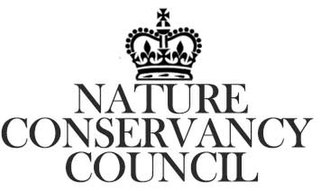This article needs additional citations for verification .(December 2009) (Learn how and when to remove this template message) |
The Scottish Countryside Rangers' Association (SCRA) is the professional association supporting rangers and other countryside professionals in Scotland. Formed in 1974, the association has a strong tradition of supporting its members through the provision of advice, training and the facilitation of networking opportunities.
A professional association seeks to further a particular profession, the interests of individuals engaged in that profession and the public interest. In the United States, such an association is typically a nonprofit organization in the tax code, sense.

Scotland is a country that is part of the United Kingdom. It covers the northern third of the island of Great Britain, with a border with England to the southeast, and is surrounded by the Atlantic Ocean to the north and west, the North Sea to the northeast, the Irish Sea to the south, and more than 790 islands, including the Northern Isles and the Hebrides.
Over recent years, efforts of the association have included organising the International Ranger Federation's 2006 World Ranger Congress in Stirling (in partnership with the Countryside Management Association of England and Wales), producing the Ranger Standards Manual, and starting to implement a programme of continuing professional development for rangers working in Scotland.
The International Ranger Federation is an organisation which represents Park Rangers and Park Wardens across the world.

Stirling is a city in central Scotland. The market town, surrounded by rich farmland, grew up connecting the royal citadel, the medieval old town with its merchants and tradesmen, the bridge and the port. Located on the River Forth, Stirling is the administrative centre for the Stirling council area, and is traditionally the county town of Stirlingshire. Proverbially it is the strategically important "Gateway to the Highlands".
Over 300 rangers work in Scotland, employed by local government, by public bodies such as Forestry Commission Scotland and Historic Scotland, and by non-governmental organisations such as the Scottish Wildlife Trust. [1]
The Forestry Commission is a non-ministerial government department responsible for forestry in England and Scotland. It was set up in 1919 to expand Britain's forests and woodland after depletion during the First World War. To do this, the commission bought large amounts of former agricultural land, eventually becoming the largest land owner in Britain. The Commission is divided into three divisions: Forestry Commission England, Forestry Commission Scotland and Forest Research. Forestry Commission Scotland reports to the Scottish Government.

Historic Scotland was an executive agency of the Scottish Government from 1991 to 2015, responsible for safeguarding Scotland's built heritage, and promoting its understanding and enjoyment. Under the terms of a Bill of the Scottish Parliament published on 3 March 2014, Historic Scotland was dissolved and its functions were transferred to Historic Environment Scotland (HES) on 1 October 2015. HES also took over the functions of the Royal Commission on the Ancient and Historical Monuments of Scotland.

The Scottish Wildlife Trust is a registered charity dedicated to conserving the wildlife and natural environment of Scotland.






